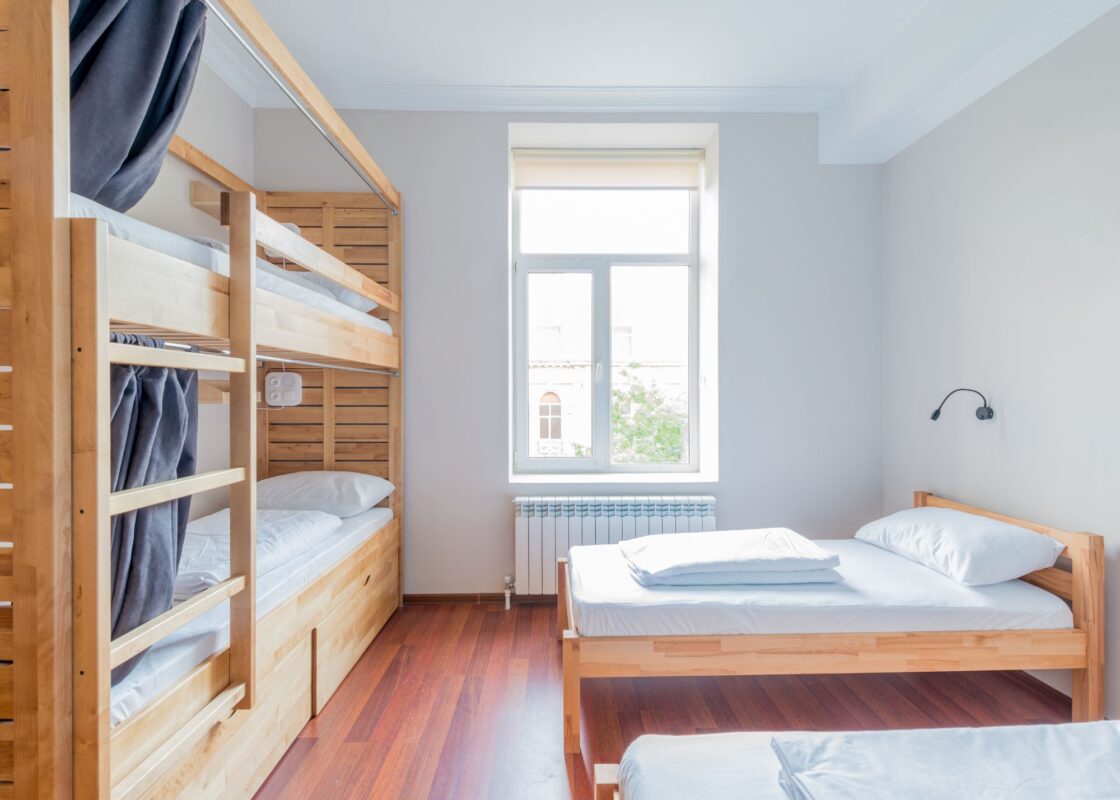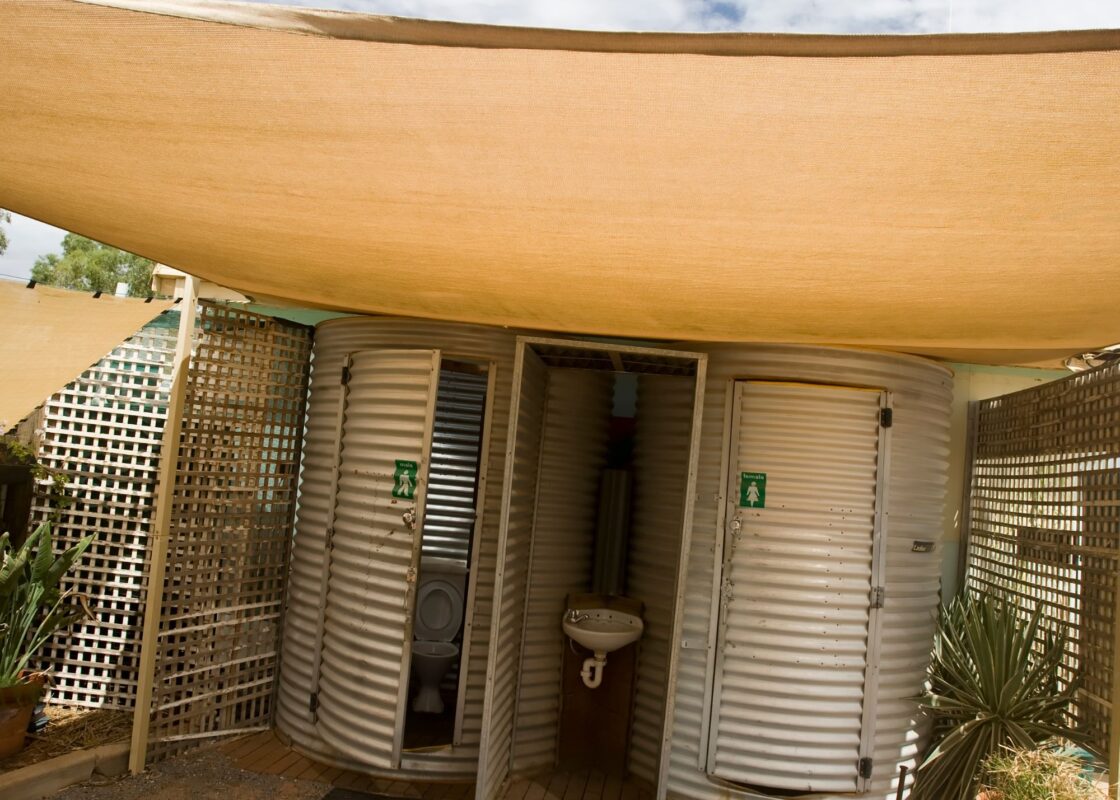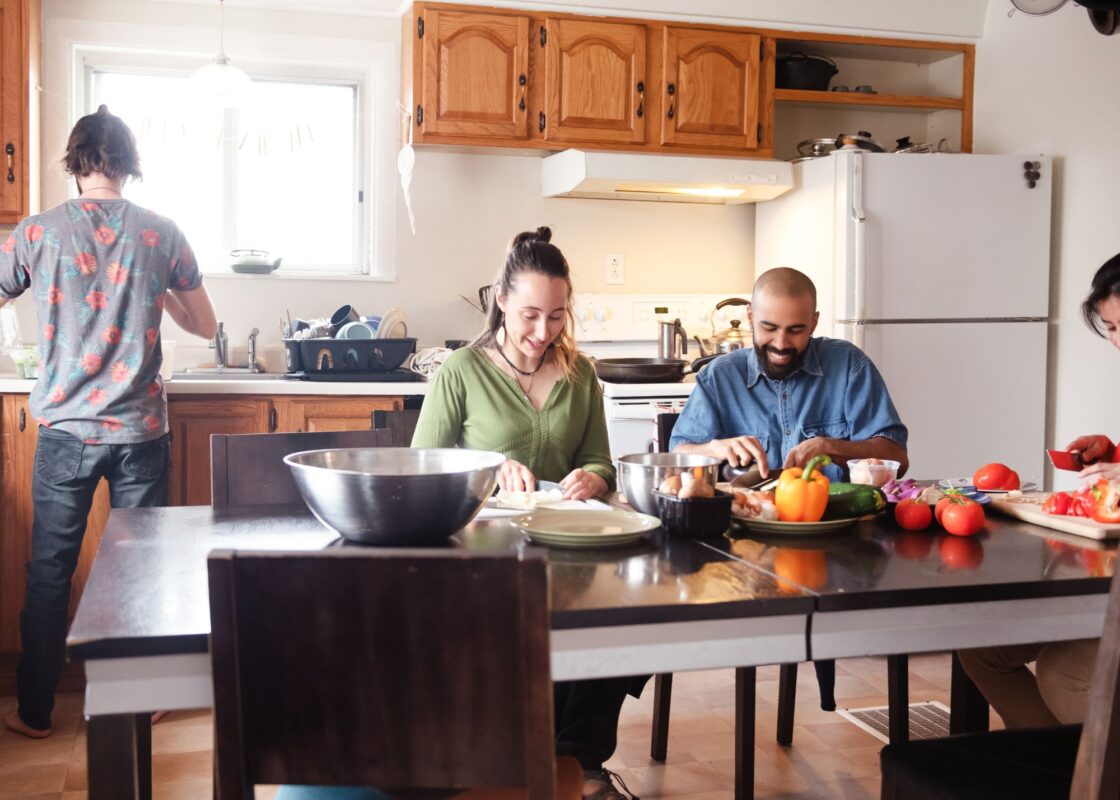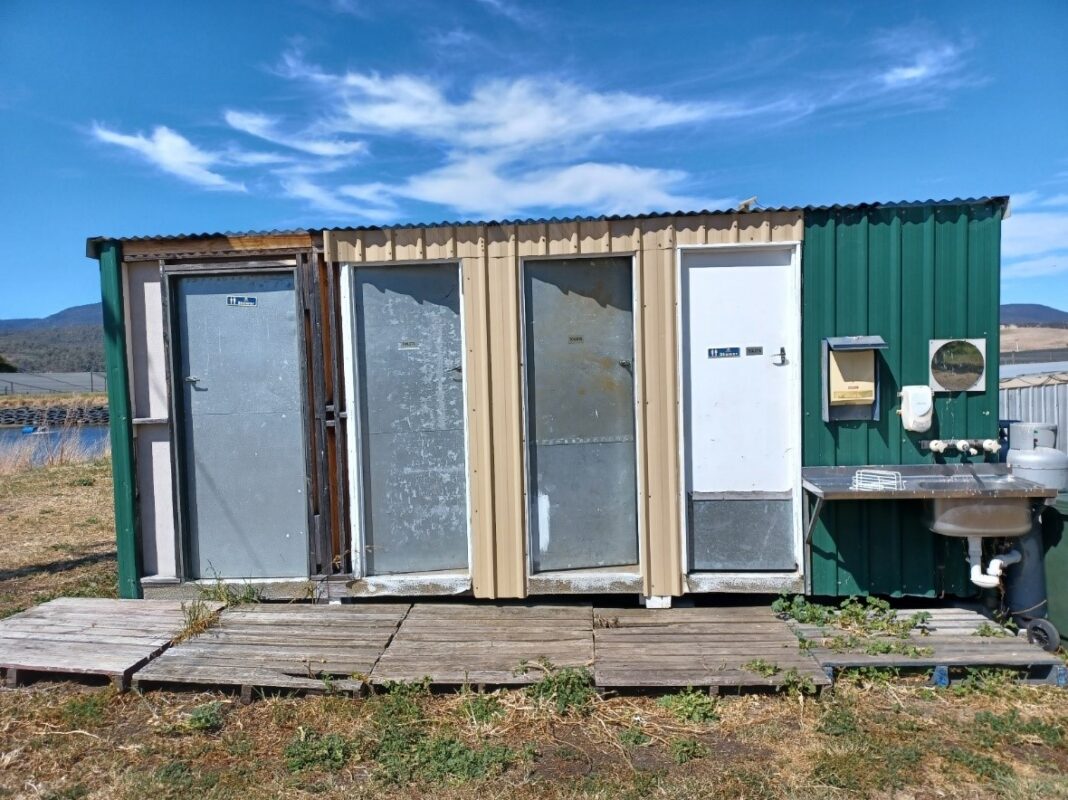No beds, no workers. If a region grows commodities that require seasonal workers for only relatively short periods of time, it may not be viable for hostels or other budget accommodation providers to exist. Without somewhere cheap to stay, itinerant workers may not be able to take up seasonal jobs on offer, even if they are keen.

Neither snails nor turtles have toilets!
Backpackers and grey nomads are often portrayed travelling the country in camper vans or caravans looking for work. While grey nomads are likely to own self-contained caravans, only a small proportion of young overseas people on a Working Holiday Visa have an on-board bathroom or toilet. In fact, most simply do not have sleeping or camping options at all, and rely on accommodation at their destination. However, some will carry tents in their car, but like the basic backpacker van, they will not have on-board ablution facilities.
So, if you are a grower, to have a choice of workers available to pick the best, providing basic facilities on-farm is a means to attract people to service your needs.
Grass and a bathroom – all you need
By its very nature farming requires space. And while some horticulture operations will utilise every square metre for growing, most will have some space, often around shedding and office infrastructure. If some of that space was dedicated to curating a patch of mown grass and building an ablution block, many fit young people would take up the offer of camping while working. In fact, many overseas visitors consider living on a farm as part of the experience they seek by coming to Australia in the first place. And while the length of stay may be determined by how pleasant weather conditions are, having basic facilities will both attract and retain some of these potential workers.

An ablution block does not need to be an elaborate or expensive affair. A concrete slab surrounded by a corrugated iron wall is all that is needed to start. Even a roof is optional – although highly desirable! Tapping into established irrigation systems can provide basic plumbing to provide running water for showers, hand basins and toilet flushing. The one challenge is providing a septic system that complies with local government regulations. Some require simple planning approval while others are more complex and even obstructive. Either way, the starting point is to find out what the authorities require and determine how to achieve that. Even electricity is optional, but again, highly desirable, especially for lighting and mobile phone charging.
Second-hand is cool!
Cost is determined largely by how fancy the structure is. Budget examples using second-hand material and farm labour may be just as usable as professionally built facilities. In fact, the bucolic nature of some structures is part of the appeal for many adventurous travellers, particularly backpackers. And while grey nomads are less interested in aesthetics, those without onboard bathroom facilities will be happy to use anything provided so long as it is hygienic.
Whether you charge a fee for campers to stay is a matter of opinion. There is a thought that at least a small weekly fee should always be charged to ensure those staying put a value on the facility offered. ‘Free’ is sometimes treated as not-of-value, and disrespected accordingly. To reduce staff turnover some shrewd employers, offer a refund of any camping fee for workers who stay for the season, or for an agreed minimum time.

Although most campers can eat out of their vans or tents, food storage is a limiting factor, and can attract vermin or induce inappropriate waste disposal. So, an added step of including a camp kitchen is an obvious upgrade. Once again, this can be done with little investment – second-hand stores can provide everything needed. However, the critical service needed to support campers is the provision of running water, privacy, and a septic system.
Start growing some lawn.
So, don’t wait until harvest is about to start to consider how you are going to attract, and more importantly, retain seasonal workers. Start watering a grassy patch and planning to build an ablution block. When the time comes you will be rewarded with a greater array of potential workers to choose from. And with more choice comes greater quality.

